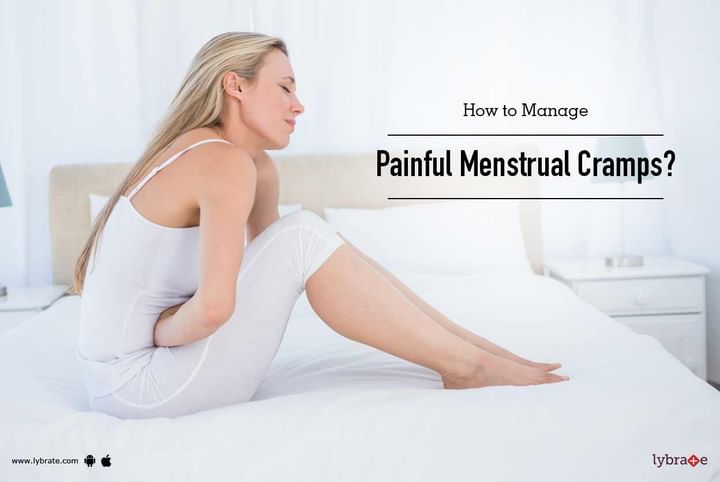How to Manage Painful Menstrual Cramps?
Painful menstrual cramps is a condition during periods in which a woman or girl has crampy lower abdominal pain, sharp or aching pain that comes and goes, or the pains which radiates to lower back and thighs. In some women or girl the cramps are associated with nausea, loose stools, headache and dizziness. Many women or girls have painful menstrual cycles.
During menstrual cycles, the uterus tries to expel out its lining and a hormone called progesterone is responsible for the uterine muscle contraction. The more the prostaglandin level, more painful the cramps.
Sometimes the pains are moderate to severe making it hard to do normal household work, job, or school-related activities during each menstrual cycle. Painful periods or menstruation is the leading cause of absence from school and work among women in their teens and 20s.
In medical terms it is called as 'Dysmenorrhea.'
There are two categories of Dysmenorrhea.
-
Primary Dysmenorrhea
-
Secondary Dysmenorrhea
Primary Dysmenorrhea is menstrual pain that occurs around the time that menstrual periods first begin in healthy young women. In most cases, it is not related to a specific problem with the uterus or other pelvic organs.
Secondary Dysmenorrhea is menstrual pain that develops later in women who have had normal periods. It is often related to problems in the uterus or other pelvic organs, like
-
Fibroids
-
Intrauterine device (IUD)
-
Pelvic inflammatory disease
-
Premenstrual syndrome (PMS)
-
Sexually transmitted infection
Home remedies to manage the Menstrual Cramps-
-
Take a hot water bag and give hot fermentation to lower abdomen, lower back or thighs
-
Do light circular massage with your fingertips around your lower belly area.
-
Eat light but frequent meals.
-
Healthy nutritional diet is a great help
-
Side lying position with knee folded helps to relieve the pain
-
Practice relaxation techniques such as meditation or yoga
-
Take warm showers or baths.
-
Walk or exercise regularly, including pelvic rocking exercises
-
Loose weight if overweight
When to consult a doctor?
-
Severe pain associated with nausea/ vomiting
-
Increased or foul-smelling vaginal discharge
-
Fever and pelvic pain
-
Sudden or severe pain, especially if your period is more than one week late and if sexually active
-
No relief with routine medications
-
If intrauterine device (IUD) is inserted
-
Heavy bleeding with clots
-
Pain occurs at times other than menstruation, begins more than 5 days before period, or continues after period is over.



+1.svg)
